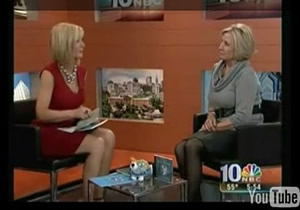 Today, Gary Foreman has shared a post directed at finances and divorce.
Today, Gary Foreman has shared a post directed at finances and divorce.
Separating Financial Affairs After Divorce
by Gary Foreman
Divorce not only dissolves a marriage, it also separates your finances. At least it should. But, all too often the process of divorce leaves finances hopelessly tangled. Consider this recent email:
I am getting a divorce. We have a joint account and also separate accounts. Can my ex withdraw more than half legally from our joint account even though we verbally agreed that the joint account would remain intact for paying bills (mortgage, maintenance, utilities, etc.) since we still share a residence?
Nicole
Nicole is right to pay attention to her finances through the divorce process. Just as money is often a major reason for divorce, it’s also often a cause of troubles during and after a divorce. Even couples who have kept their finances generally separate will find that their money in intertwined in a few areas.
The simple answer to Nicole’s question is “yes.” Her Nearly-Ex can make major withdrawals from a joint checking account. In a joint bank account, either person can withdraw all of the money, regardless of any agreements between the parties. That’s true even if it were Nicole’s account before they were married, she’s made every deposit, and her Nearly-Ex was added to the account merely for convenience. Even if her Nearly-Ex puts it in writing, he still can go down to the bank and take every cent before or after the divorce.
A joint account is only good for people who completely trust each other. Clearly not the case during a divorce proceeding.
What Nicole’s options? One solution would be for each of them to write a check for one half of each household bill. More work? Sure, but a whole lot safer.
Her checking account could be the least of her troubles. Joint debts can be a disaster waiting to happen. The lender will look for payment from anyone listed on a debt. The same thing is true for mortgage payments and credit card accounts. If both of them are on the loan, the lender can go after either of them for repayment of the entire loan, regardless of what Nicole and Nearly-Ex agreed during the divorce.
And just because the court orders her Ex to make payments doesn’t guarantee that he won’t lose a job and fall behind. If she’s still on the loan, the lender will start calling to ask her for payment. Any missed payments will reflect on her credit score. Short of making the payments herself, there’s really not much she can do but plead with her Ex to catch up.
Any loan or credit card that has both Nicole and her Nearly-Ex listed should be closed out or refinanced by one or the other. That might not be easy. For instance, the bank won’t think that a loan to one of them is as safe as a loan to both. The reason is simple. Now the lender only has one possible source of payment instead of two. Because of that, the lender may want a higher interest rate.
Nicole and Nearly-Ex should also re-title any jointly owned property. Owning joint assets with your Ex can be troublesome. Even if the divorce was friendly. Joint ownership creates both privileges and responsibilities that aren’t shared very well by divorced people.
For instance, both parties must agree to sell any joint property. Nicole wouldn’t be happy if a year from now, her Ex refused to sign off when she wanted to sell her car. But if both names are on the title, she’ll need both signatures to sell it.
Once all that’s completed, Nicole will also want to check her other financial documents and make the appropriate updates. Her Ex might be listed as the beneficiary of her life insurance and IRA. Nicole will also need an updated will. Don’t forget bank safe deposit boxes or auto and home insurance policies.
Is that a lot of work? Sure it is. But just like divorce means separating a lot of possessions and memories, it also means separating your financial affairs.
Thanks so much Gary! As usual great information!
Friends, I have said so very often it’s never too early to begin to prepare for you divorce. It will only help you in the long run by saving money and stress.
Photo by jenn_jenn

